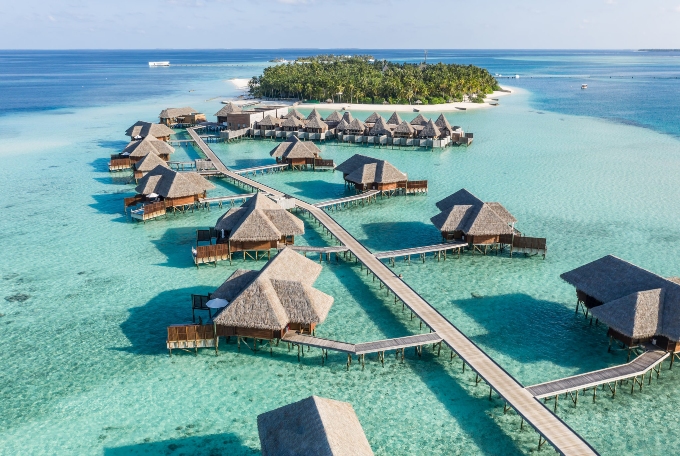
Environment / Travel /
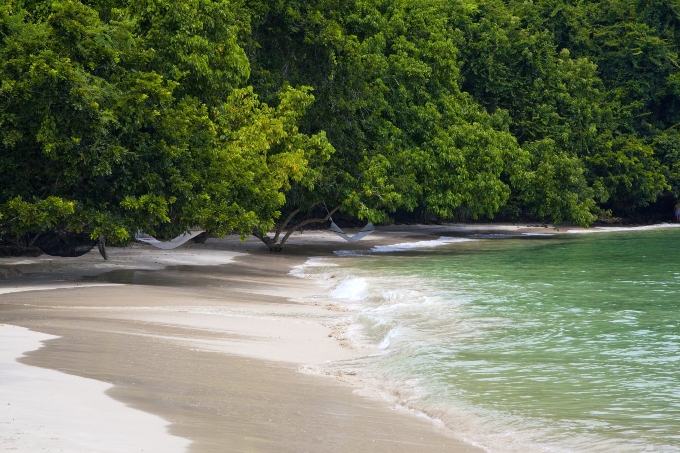
Green-minded, adventurous travellers need look no further than Gaya Island Resort in Borneo, tucked away amongst protected mangroves, sheltered coral reefs and pristine sandy coast. It’s a special spot for those who want to support the natural environment and for those who like to use holidays to educate themselves further on sustainability issues. It’s a place that immerses you within the natural world, both above and below water. Along with a snorkelling exploration with the resident marine biologist, a guided rainforest walk with the resident naturalist during the day and a kayak trip through the mangroves, the resort offers a coral planting experience with the resident naturalist, as seen on Dame Judi Dench’s Wild Borneo Adventure. Developed through the Gaya Island Resort Marine Centre, the coral reef restoration has a special focus on marine conservation through education programmes.
It’s easy to see why properties on the island of Bali would be forerunners in ocean regeneration, after all, their surroundings are incredibly stunning and being at one with nature is considered the norm. Alila Manggis, on the east shores of the island, has placed an emphasis on their Coral Conservation Programme and on involving guests in the sustainability work they do. Based on the rapid assessments of Bali’s reefs conducted by Conservation International, the reefs around the hotel are of high conservation value. Through thorough assessments and research, they have identified what needs to be done to conserve and improve the reef and work on this alongside the guests. One of their initiatives sees them educate people on corals, what they are and how they sustain life, as well as offer a chance to dive, donate and buy new coral stock for the artificial reef.
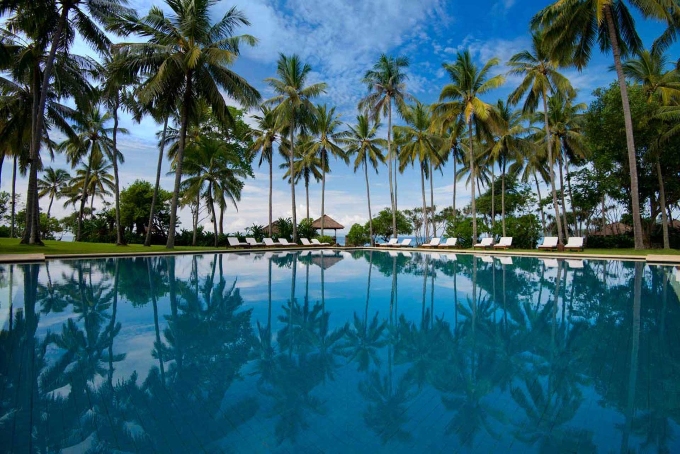

Innovation is key, and for this incredible hotel, it’s all about raising awareness and educating guests. It’s not hard to see why it works so well, given that the island is in the middle of the ocean and nature is thriving on its doorstep. The Fairmont Sirru Fen Fushi has the Maldives’ first and only underwater art gallery and coral regeneration project, designed by British eco-artist, Jason deCaires Taylor. The installation aims to raise awareness of the threatened eco-system, educate guests on the underwater world and rehabilitate the reef. This semi-submerged tidal gallery acts as a portal to the abundant sea life and pristine house reef surrounding the hotel, and the Coralarium structure act as an artificial reef, encouraging local marine life to make it a home. As one of the world’s most celebrated ‘underwater naturalists’, Taylor’s work has become an integral part of the local eco-system, created with non-toxic, marine-grade compounds, free from harmful pollutants. The Coralarium has quickly become inundated with marine life, and adventurous guests eager to discover the thriving underwater world can do so with the on-island marine biologist.
After a number of natural and manmade disasters contributed to the sudden decline of Jamaica’s once bountiful coral reefs, this particular hotel decided something needed to be done about it. To put it into context, statistically, the country lost 85% of its reefs in the past 60 years (with a 90% decline in the last 40 years). Not only do fish greatly rely upon coral reefs to survive, but also the decline in coral subsequently led to fish catches declining to a sixth of what they had been in the 1950s, forcing families dependent on seafood close to poverty. In 2017, Jamaica Inn partnered with marine association White River Fish Sanctuary to support efforts to protect the island’s coral and fish. They set a goal to increase the fish biomass by 500% in five years – the results have provided a sign of hope and regeneration for the Caribbean Sea. The White River Fish Sanctuary’s efforts have dramatically increased the growth of coral and encouraged the return of tropical fish to the Caribbean Sea. The Sanctuary employs fishermen to patrol the waters, enforce the no fishing zone and encourage other fishermen to adhere to the limits, which have been negotiated to ensure the sea’s fish are protected. Importantly, the men also protect the fish sanctuary area and coral gardens, which allow immature fish and coral to grow and reach reproductive age without being caught.

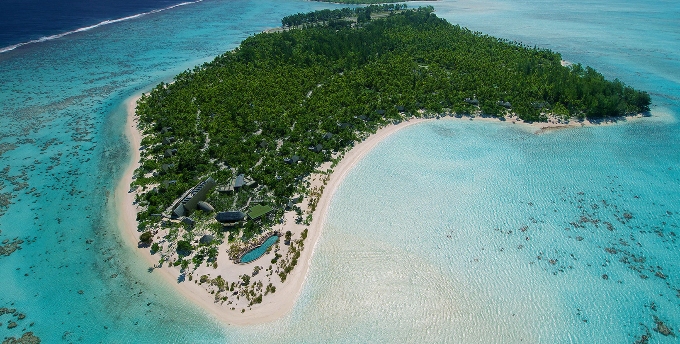
Nestled in a remote location in the Tetiaroa Atoll, glistening turquoise water and lush, tropical foliage surround The Brando – it’s certainly an inspiring place to add to your bucket list. Once the private retreat of Marlon Brando, guests can experience ultimate luxury in a selection of villas boasting private pools, direct beach access, and alfresco bathtubs. But to make it all even more appealing, you know you can do some good when you travel there too. For one thing, setting a new world standard, the resort is close to reaching its goal of being carbon neutral and self-sustainable. Considering themselves stewards of Tetiaroa, and believing that they have the responsibility to treat it with the highest level of care and respect, the hotel puts sustainability first. The hotel has established an Ecostation on the island, and gifted it to Tetiaroa Society. The Ecostation – named “Te Fare Rauihi” (The House of Multiple Sciences) – is a hub where scientists from around the world can lead research into sustainable interdependence, implement these lessons on Tetiaroa, and teach them globally to improve our relationship with the ocean and nature.
This beautiful property, situated in the South Ari Atoll, has decided to take action against the continued decline of coral in the Maldives. They started their first Coral Conservation Programme in 2018, based around allowing guests to sponsor coral frames. They attach corals of opportunity (corals that had been broken off during storms) to metal frames and every six months the frames are monitored and photographs are taken to document growth rates. Recently, they wanted to further their coral conservation initiatives and they deployed the new Coral Line project, installed on the house reef. It’s a floating square that houses lines (rope) that contain coral fragments. Guests can sponsor a coral line and, with the help of the island’s Marine Biologist, plant up to 20 corals of opportunity inside. The aim of this project is to plant the coral fragments back onto the house reef after they have grown big enough. This type of project is relatively new to the Maldives and, excitingly, it is flourishing. With the lines having between 76-100% survival rates and growth rates between 2.7mm and 38.1mm, it has set an exciting precedent for the other resorts.

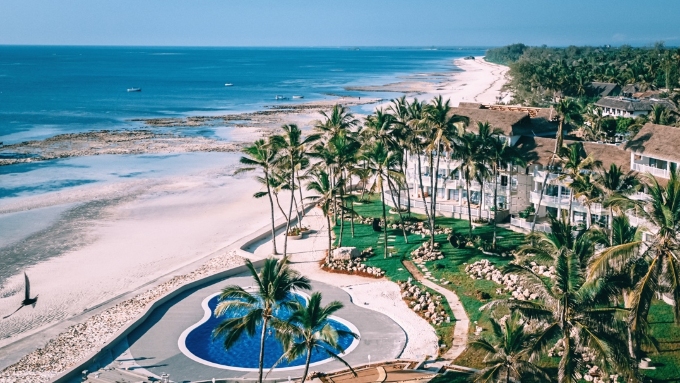
Hemingways Watamu is tackling the challenge of plastic waste on the Kenyan coast head on, making waves in the fight against this blight on the oceans. The hotel, which is a Founding Member of the Watamu Marine Association, is committed to conserving the beauty of the Kenyan coastline and the ecosystem of coral reefs, turtles, barracuda, and whale shark that live within it. Recently, too, the hotel has introduced an Eco Awareness Programme for sustainably conscious guests to get involved whilst on holiday. They also have the opportunity to spend a day learning about the Watamu Marine Association, learning about the impact that plastic waste is having on the fragile environment. The Watamu Marine Association brings together the community and local hotel businesses to preserve the environment along the Watamu coast. The hotel is also working with EcoWorld Watamu – a non-governmental organisation that hires underprivileged locals to collect plastic debris along the beach each week and reuse and recycle it for better purposes.